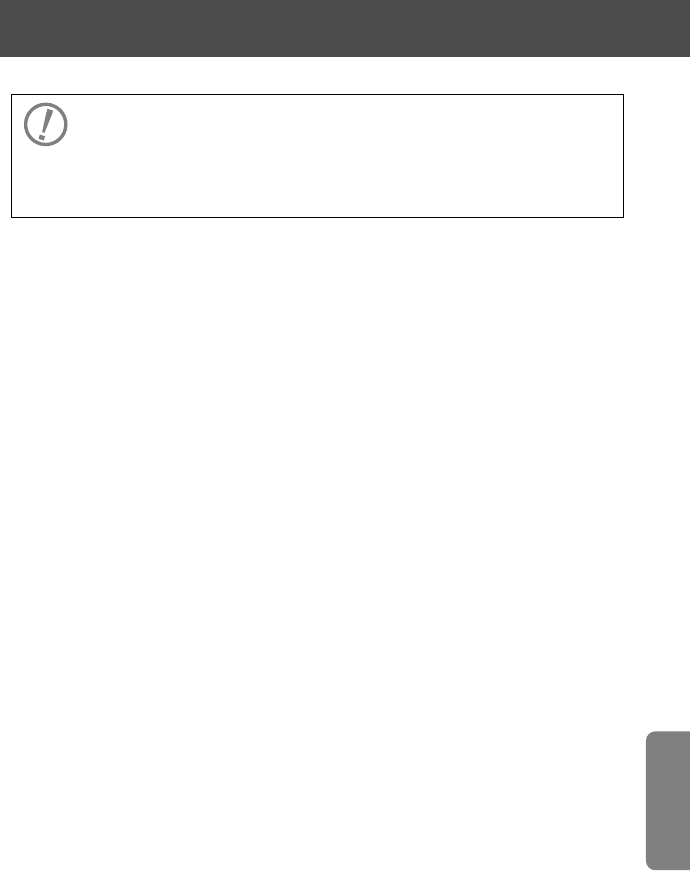
87
WARNING
• Keep batteries out of the reach of children. If a battery is
accidentally swallowed, call a doctor immediately.
Notes on handling batteries
• Do not expose batteries to excessive heat. Never store them in the truck
or glove compartment of a vehicle during the summer or place them near
a fire or hot surface. Even hot, direct sunlight may cause them to
explode.
• When loading batteries, make sure the SB-28 is turned off, then follow the
+ and – symbols inside the battery chamber.
• If the SB-28 is not used for more than two weeks, remove the batteries
and store them in a dry place at 20°C (68°F) or below.
• Battery power tends to weaken as the temperature drops. It also weakens
after heavy use, recovering gradually after a short break. Power gradually
decreases when batteries are not used for a long time. Check battery
power before use; replace batteries with a new set before they are
completely exhausted.
• Battery performance may differ with each brand, due to modification in
specifications or improvement in performance.
Four AA-type alkaline-manganese, lithium, or rechargeable
NiCd or Nickel-Metal Hydride (Ni-MH) batteries are required to
power the SB-28.
• For fast recycling times: NiCd batteries are recommended followed by (2)
Ni-MH, (3) alkaline-manganese, and (4) lithium batteries.
• For increasing the number of flashes per battery set: at normal
temperatures, lithium batteries are recommended followed by (2) alkaline-
manganese, (3) Ni-MH, and (4) NiCd batteries; at low temperatures,
lithium batteries are recommended followed by (2) Ni-MH, (3) alkaline-
manganese, and (4) NiCd batteries.
• Ni-MH batteries feature approx. the same battery power as 1000mAh
NiCd batteries.
• 1000mAh NiCd batteries have approx. 1.4 times the power capacity of
700mAh NiCd batteries.
Notes on batteries


















